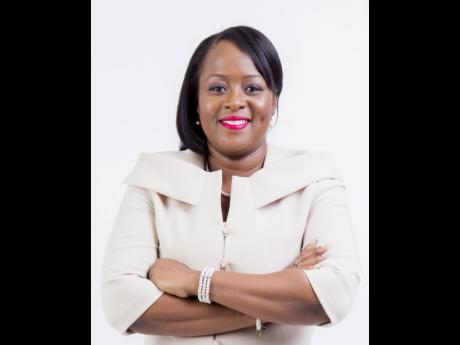Saving towards the deposit for your home
As the housing market in Jamaica continues to strengthen and mortgage interest rates remain relatively low, many Jamaicans are seriously planning to purchase a home this year.
However, home purchase is a very important undertaking, especially when one considers the major financial costs involved. And, in many cases, prospective homeowners are unaware of the different types of fees that they will be required to pay, as they set out on their real estate acquisition journey.
Petal James, head of mortgage sales at JN Bank, says among the associated fees is the deposit, or downpayment, which is normally required by vendors upfront, in the home purchasing process.
"Let's say you're interested in purchasing a home for $8 million, which falls in the mid-income market segment. That means the deposit would be five per cent, or approximately $400,000," she said, explaining that some vendors request as much as 10 per cent of the going purchase price.
Additional Costs
Miss James, further pointed out that there are additional costs that are not readily known by some prospective home buyers.
Jerome McPhail, real estate agent at Re/Max Elite concurred with Miss James, noting that the additional fees to contemplate are: the closing costs, escalation fees, and legal costs.
"Some buyers are aware of the deposit, but many are unaware of the fact that in some instances, they will also need up to 25 per cent cash, up front, to cover the cost of a series of professional and other fees," MrMcPhail explained.
He said that these costs include: approximately three to five per cent for the closing costs; and five or ten per cent for escalation fees. Then, there are also: the legal fees; transfer tax and stamp duty, which could amount to an additional four per cent of the going purchase price.
Mr McPhail noted that on that basis, someone purchasing a home valued at $8 million, could be required to pay about $1.6 million at five per cent, for the deposit; or $2 million, at 10 per cent for the deposit, when taking into consideration all the associated costs.
Against that background, Miss James said that it is important for prospective homeowners to save in advance to meet their deposit and the additional fees. She also estimated that it could take approximately three years, for the average person, who wishes to purchase a home in a middle-income community, to save the deposit.
Practical Step
She said that one practical step towards saving for the deposit include preparing a budget, and sticking to it.
"Avoid spending on non-essential items and impulse purchases, as this type of spending impacts negatively on your ability to save; and will delay your dream of owning your home. Open a separate bank account, ideally a high-earning savings account; and set-up an automatic payday transfer; as well as, make top-ups whenever possible," Miss James advised.
She said it is important to ensure that this "home purchasing account" remains off limits no matter what. And, prospective homeowners are also advised to save 100 per cent of any windfalls or unexpected cash inflows.
"Your NHT refund, or a nice year-end bonus, are perfect examples," Miss James advised. "Therefore, use those funds to increase your savings. And, while it is tempting to splurge a little, even as you save a little, achieving a down payment for real estate acquisition requires a lot of restraint. Hence, you should be realistic, and examine every source of expenditure, including your day-to-day expenses, and one-time cash infusions to determine how much you can really save."
"The end product, owning a home of your own, will be a most rewarding achievement," she affirmed.

